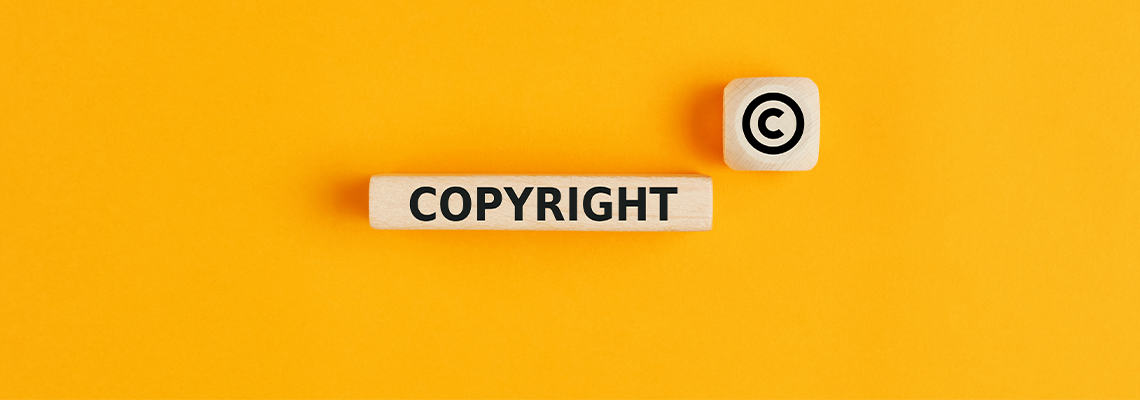
Common Misconceptions About Copyrights
If you are an independent inventor who is interested in applying for a patent in Kansas City, Missouri, you might have some concerns about protecting your intellectual property and questions about copyrights. A copyright attorney at Ream Law Firm, L.L.C. can help safeguard your intellectual property and clear up some misconceptions about copyrights. This way, you can begin the patent process feeling more secure about navigating the often-confusing area of copyright law.
What Is Copyright Protection?
The holder of the copyright has exclusive rights to reproduce the work, distribute copies of the work, and create derivative works based upon the original (for example, the copyright holder of a book can create a play based on that book). The U.S. Copyright Office is the body responsible for processing copyright claims within the United States, as well as setting the rules and regulations relating to U.S. copyright law.
Requirements
There are three main requirements to meet in order to obtain copyright protection. The first, fixation, dictates that your work must exist in a tangible way; that is, it must be experienced by reading, seeing, or hearing it. The second requirement, originality, demands that your work is yours alone. The final requirement, minimal creativity, states that you must have exercised some level of creativity to make this product or piece of work.
Protected Works
You might be curious as to which types of works can receive copyright protection. Literary, musical, dramatic, pantomime/choreographic, pictorial/graphic/sculptural, motion picture/audiovisual, architectural work, and sound recordings are all protected by the U.S. Copyright law, whether they have been published or not.
Unprotected Works
Works that do not enjoy copyright protection include:
Works for which an existing copyright has expired
Works created on the job by federal government employees
Works in the public domain
Works that lack fixation (that is, they have not been written down, notated, recorded etc.)
Works such as titles, names, slogans/short phrases, commonplace/recognizable designs or symbols, small variations of typography or typographic embellishment, and ingredient/content lists (such as recipes with no detailed directions or not compiled in a cookbook), unless protected by trademark law
Works such as ideas, concepts/principles, discoveries, or implements unless protected by patent law. Copyright protection may be claimed for a fixed notation/illustration/description of an idea, but the idea itself will not be protected.
Works taken from common property and cannot be traced to an original author (e.g., standardized calendars)
Common Copyright Myths and Misconceptions
You don’t have to ask the copyright holder for permission to use the work if you only use a small amount of it.
Some people believe that permission to license is not needed if only a certain amount or percentage of the work is used or if only a certain amount of copies are made. What constitutes copyright infringement varies from case to case. A copyright holder can argue that you’ve used and/or are unfairly distributing an important part of the work, despite how little you’ve used.
If the public can access it, the public can use it.
Just because you can buy and own a work by another author does not mean you own the rights to the work. For example, a member of the public can purchase a book, but they cannot reproduce that book or create a derivative work based on that book without the copyright holder’s permission (unless, of course, that book is in the public domain).
“Fair Use” Is the Same Throughout the Whole World
This is not true. For example, the “fair use” doctrine in the U.S. and “fair dealing” exception in the UK both allow for a small amount of reproduction or use of a work if certain requirements are met—for example, if the work is being used for such things as parody, criticism/review, or news reporting. However, each country approaches these concepts slightly differently, so an exception in the U.S. might not be granted in the UK—and vice versa.
Without the © symbol, a work is not copyright-protected.
Not the case. The copyright notice has been optional since March 1, 1989.
Copyright protection extends to all ideas and all kinds of works
As demonstrated above, copyright protection is limited. For example, your idea for an invention is not automatically protected under U.S. copyright law—which is why it would be a good idea to hire a copyright attorney to help you in this case.
Turn to A Skilled Copyrights Attorney Today
If you are a new inventor looking to apply for a patent, Attorney Dale J. Ream, serving Kansas City, Missouri, and the KC metro area (including Johnson County, Kansas, and Jackson County, Missouri), is the right choice. A former computer scientist and engineer, Attorney Dale J. Ream is passionate about helping inventors on their journeys to develop their products, from prototyping to copyright registration. With over two decades of experience in many areas, including patents, intellectual property law, and licensing and commercialization, he is ready to help you take your product to the next level. Call Ream Law Firm, L.L.C., today for a free consultation.
